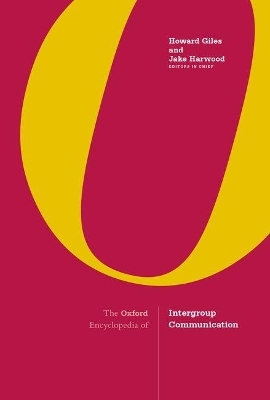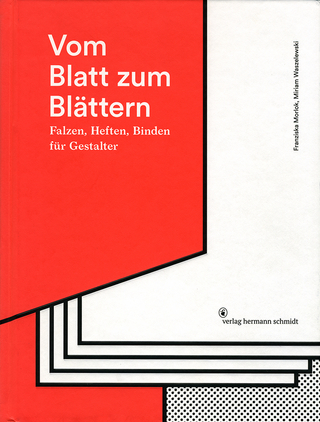
The Oxford Encyclopedia of Intergroup Communication
Oxford University Press Inc (Verlag)
978-0-19-045452-4 (ISBN)
The Oxford Encyclopedia of Intergroup Communication is the first dedicated to this burgeoning field within communication studies. The essays in this collection explore geographic regions, communication processes, theories, and applied areas of interest, all pertaining to how human communication processes are influenced by, and themselves influence, the groups to which we all belong. In an authoritative volume, the project brings together research, theory, and application on both well-established and newly explored intergroup communication situations. The new perspectives not covered in earlier works include:
- how word order affects social status
- how metaphors shape intergroup relations
- how sexual orientation is communicated
- how interpersonal and intergroup communication intersect
- what neuroscience contributes to intergroup communication
- and how intergroup communication operates in previously unacknowledged settings such as the military or in the political arena.
Given that the "intergroup umbrella" essentially integrates and transcends many of the traditional conceptual boundaries in communication (such as media, health, intercultural, organizational and so forth), The Oxford Encyclopedia of Intergroup Communication provides an intriguing window into the communicative world of intergroup relations so integral to other social sciences. The encyclopedia will be an essential reference for anyone interested in intergroup communication issues, particularly research scholars and graduate students.
Howard Giles is Professor and Graduate Advisor in the Department of Communication, University of California, Santa Barbara. He has previously served as chair of the department, as well as assistant dean of Undergraduate Studies in the College of Letters and Science. In 2009, he received the Mark L. Knapp Award of the National Communication Association for career contributions to the study of interpersonal communication. He is a fellow of the American Psychological Association, the British Psychological Society, and the International Communication Association, among others. He is the former president of the International Communication Association and International Association for the Study of Language & Social Psychology. Dr. Giles was also the co-founding chair of the ICA Interest Group on intergroup communication and the Editor of the above recent Handbook of Intergroup Communication. Jake Harwood (Ph.D., University of California, Santa Barbara) is Professor of Communication and former director of the Gerontology program at the University of Arizona. He is author of Understanding Communication and Aging (2007) and Communication and Music (2015), and co-editor of The Dynamics of Intergroup Communication (2011). He has published over 100 articles and chapters on intergenerational communication, intergroup communication and communication and music, including in journals such as Human Communication Research, Journal of Communication, and Personality and Social Psychology Bulletin.
1. Approaches and Methods in Intergroup Communication
Behavioral Indicators of Discrimination in Social Interactions
Conversation Analysis and Intergroup Communication
Discursive Psychological Approaches to Intergroup Communication
Evolutionary Approaches to Intergroup Communication
New Methodological Approaches to Intergroup Communication
Qualitative Methods in Intergroup Communication
2. Geographical Regions
Conflict and Perceived Threat in Eastern Africa
European Union: Integration, National, and European Identities
Intergroup Communication: Asia/Australasia
Intergroup Communication: The Baltic Countries
Intergroup Communication: India
Intergroup Communication: Scandinavia
Intergroup Communication: Spain
3. Institutional Contexts
Crisis Communication
Family Relationships and Interactions: Intergroup Approaches
Intercultural Workplace Communication
Politician-Public Group Dynamics
Sport and Intergroup Communication
Terrorism and Intergroup Communication
Uncertainty and Extremism
4. Intergroup Communication Phenomena
Acculturation and Intergroup Communication
Apprehension and Anxiety in Communication
Collective Protest, Rioting, and Aggression
Group Labeling
Group Status
Ingroup Love and Outgroup Hate
Intergroup Contact
Intergroup Metaphors
Intractability from a Sociopsychological Approach
Jokes and Humor in Intergroup Relations
Language and Power
Language Attitudes
Legal Issues in Intergroup Relations
Linguistic Bias
Nonaccommodation
Norm Talk and Intergroup Communication
Political Correctness
Prejudiced Communication
Public Discourse and Intergroup Communication
Intergroup Communication and Reconciliation: Experiences from the Former Yugoslavia
The Role of Emotional Mimicry in Intergroup Relations
Speech and Debate
Understanding Hate Speech
5. Media
Dance as Intergroup Communication
Dress Style Code and Fashion
Identity and Online Groups
Imagined Interaction
Media Portrayals and Effects: African Americans
Media Portrayals and Effects: Latinos
Media Use in a Political Context: An Intergroup Communication Perspective
Mediated Contact
Music and Intergroup Communication
Online Contact and Intergroup Conflict Resolution
Seeking and Avoiding of Media: Intergroup Approaches
Social Media and Intergroup Communication
6. Social Groups and Contexts
Aging and Organizational Communication
Cancer Communication Science
Communicating Personal and Social Identity in Adolescence
Communicating Religious Identities
Communication, Aging, and Culture
Death and Dying: An Intergroup Communication Approach
Disability and Intergroup Communication
Discursive Approaches to Race and Racism
Gangs and Intergroup Communication
Gay Male Culture and Intergroup Communication
Gay Straight Communication
Gender Bias and Sexism in Language
Gender Issues in Intergroup Communication
Genocide and Intergroup Communication
Indigenous Languages: Their Threatened Extinction is a Global Responsibility
Inter-Ethnic Communication
Migrants and Migrant Workers
Refugees and Diaspora
The United States Military: Sites of Intergroup Discourses
Weight and Weightism
7. Theories of Intergroup Communication
Communication Accommodation Theory and Intergroup Communication
Contextual Theory of Interethnic Communication
Deception in Intergroup Communication
Identity Negotiation Theory and Mindfulness Practice
Integrated Threat Theory
Social Psychological Approaches to Intergroup Communication
Uncertainty Management Theories
Vitality Theory
| Erscheinungsdatum | 14.04.2018 |
|---|---|
| Zusatzinfo | 100 |
| Verlagsort | New York |
| Sprache | englisch |
| Maße | 272 x 201 mm |
| Gewicht | 3016 g |
| Themenwelt | Sozialwissenschaften ► Kommunikation / Medien ► Allgemeines / Lexika |
| Sozialwissenschaften ► Kommunikation / Medien ► Kommunikationswissenschaft | |
| Sozialwissenschaften ► Soziologie ► Makrosoziologie | |
| ISBN-10 | 0-19-045452-0 / 0190454520 |
| ISBN-13 | 978-0-19-045452-4 / 9780190454524 |
| Zustand | Neuware |
| Haben Sie eine Frage zum Produkt? |
aus dem Bereich


